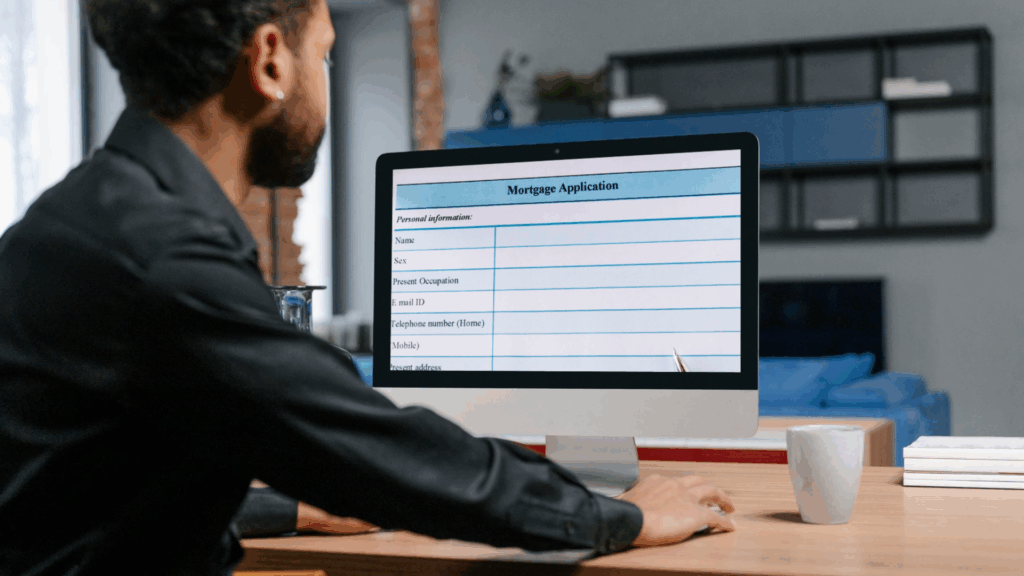- What is a Mortgage Payment Holiday?
- What Happens To Your Mortgage During a Payment Holiday
- Does a Payment Holiday Affect My Credit Score?
- Can You Take a Mortgage Holiday If You’re Behind on Payments?
- Can Landlords Apply for a Mortgage Holiday?
- How Do You Apply for a Mortgage Holiday?
- Mortgage Declined After a Payment Holiday
- What Alternatives to a Mortgage Holiday Should You Consider?
- Key Takeaways
- The Bottom Line: Is a Mortgage Holiday Right for You?
Mortgage Payment Holidays Explained: Is It Right for You?

Need a break from your mortgage payments? A mortgage holiday might be just what you need.
In 2020, the UK government introduced this scheme to help homeowners during the pandemic.
It started as a three-month break but was later extended to six months, giving many people the chance to avoid losing their homes.
While it gave short-term relief, it also raised questions.
What happens after the holiday ends? How will your payments increase, and what are the long-term consequences?
This article explains all you need to know about mortgage payment holidays from how it works, and whether taking a payment break is the right choice for you.
What is a Mortgage Payment Holiday?
A mortgage payment holiday is when you and your lender agree that you can stop making your monthly mortgage payments for a set period, usually up to three months.
It’s not a gift or free money—during the holiday, the interest on your loan continues to build up and gets added to the total amount you owe.
After the holiday ends, your monthly payments will likely go up to cover the unpaid amount.
Using a mortgage holiday calculator can help you see how this will affect your payments, giving you a clearer idea of what to expect.
Image
What Happens To Your Mortgage During a Payment Holiday
When you take a mortgage payment holiday, you stop making payments, but the interest keeps adding up.
Here’s how it works:
- Interest Adds Up – The interest you miss during the holiday gets added to your mortgage, so you’ll owe more than before.
- Higher Monthly Payments – After the holiday, your payments may go up to cover the increased balance. Your mortgage term stays the same, but you’ll need to pay more each month.
- Total Cost Increases – Since interest continues to build, you’ll likely end up paying more over the life of the mortgage.
For example, if your monthly payment is £700 and you take a three-month holiday, you’ll miss £2,100 in payments.
This amount, plus the added interest, will be added to your mortgage.
You can use a calculator to see how much your monthly payments will increase after the holiday.
Does a Payment Holiday Affect My Credit Score?
Under normal circumstances, skipping mortgage payments would harm your credit score.
But, during the COVID-19 pandemic, the UK government provided guidelines to prevent this from happening.
If you took a mortgage holiday during that time, it likely won’t appear on your credit report as a negative mark.
Even though the pandemic-related guidance has ended, it’s still essential to ask your lender how they handle credit reporting.
Not all lenders follow the same process, and you don’t want any surprises later on. 🙂
Can You Take a Mortgage Holiday If You’re Behind on Payments?
Yes, you can still apply for a mortgage holiday even if you’re in arrears.
Many lenders offer this option to help customers who are struggling. But, it’s important to speak to your lender about whether a holiday is the BEST solution.
In some cases, restructuring your payments or extending your mortgage term might be more beneficial.
Always explore your options before making a decision.
Can Landlords Apply for a Mortgage Holiday?
If you’re a landlord with a buy-to-let mortgage, you can also apply for a payment holiday, especially if your tenants are unable to pay rent.
Many landlords faced this issue during the coronavirus outbreak, and lenders were encouraged to provide leniency.
Just like with a residential mortgage, the unpaid interest will still be added to your balance, and your monthly payments will likely increase once the holiday ends.
Your lender may ask for evidence showing that your rental income has been impacted before they approve the payment holiday.
Make sure to keep proper records of your communications with tenants and your rental income to make the process smoother.
Image
How Do You Apply for a Mortgage Holiday?
Applying for a mortgage holiday is relatively simple.
You’ll need to contact your mortgage lender directly, either through their website, by phone, or in writing.
Before you apply, it’s a good idea to:
- Review your financial situation. Make sure a payment holiday is the best option for you. You can explore other options we’ve listed below this section. 👇
- Understand the alternatives. Your lender may offer other options, such as switching to interest-only payments, extending your mortgage term, or restructuring your payments.
- Use a mortgage holiday calculator: This will help you see how much more you’ll need to pay after the holiday and whether you can afford it.
Mortgage Declined After a Payment Holiday
If your mortgage got rejected because you took a payment break, don’t panic. Here’s what you should do:
- Speak with your mortgage lender. Ask why they said no and what you can do to fix it. They may be able to offer advice on what steps to take or suggest other options.
- Check your credit score. A payment holiday during the pandemic shouldn’t affect your credit score, but it’s always worth double-checking for any errors or issues. If you find any mistakes, contact the credit reference agency to correct them.
- Try other banks. Not all lenders have the same criteria. If one lender declined your application, another may still approve it. It’s a good idea to compare different lenders and find one that’s more suited to your circumstances.
- Get a mortgage advisor. A mortgage broker can help you find lenders who are more flexible about previous payment holidays. They’ll have access to deals that might not be available to the general public and can advise you on the best way forward.

What Alternatives to a Mortgage Holiday Should You Consider?
A mortgage holiday isn’t your only option if you’re struggling to keep up with payments. There are other choices that might work better for your finances.
Let’s look at these options more closely:
Extending Your Mortgage Term
If you’re finding it hard to keep up with monthly payments, extending your mortgage term can lower what you pay each month. This works by spreading the remaining balance over more years.
While it eases your payments now, you’ll pay more interest overall.
For example, if you extend a 25-year mortgage to 30 years, your payments will be smaller, but the extra five years of interest could cost you more in the long run.
Switching to an Interest-Only Mortgage
With this type, you only pay the interest each month, making your payments smaller. But remember, you don’t pay off the loan itself. So, your debt stays the same.
This can be good if your finances are tight now but you think they’ll get better soon. But it’s not a long-term solution because you’ll eventually have to start paying off the loan as well.
Remortgaging
Remortgaging is when you change your mortgage deal. You might get a lower interest rate, which means smaller payments.
You could also choose a fixed-rate mortgage for more stable payments or a flexible deal that’s better for you.
But remember, remortgaging can cost money. So, it’s important to work out if you’ll save more than you’ll spend.
Pension Drawdown
If you’re 55 or older, you might be able to use your pension.
Pension drawdown lets you take some of your pension money now. You can take up to 25% as a lump sum, and you can take more later if you need it.
But remember, taking money from your pension early means you’ll have less for retirement.
Secured Loans
If you own a home, you could apply for a secured loan, also called a second-charge mortgage.
This loan uses the equity in your home as security. Secured loans often have lower interest rates because your home backs the loan.
To qualify, you’ll need enough equity in your property. Lenders will also check that you can afford the repayments, including your existing mortgage.
Remember, if you can’t repay the loan, you could lose your home. Always be sure you can manage the costs before taking one out.
Partial Payments
Some lenders may allow you to make partial payments during financial hardship. This means you contribute what you can, rather than the full mortgage amount.
It’s a flexible option that allows you to stay on track without the strain of full payments.
But remember, any unpaid part will be added to your debt later. So, this is just a temporary solution.
Before you decide, speak to your lender or a good mortgage broker to explore the best solution for your situation.
Key Takeaways
- A mortgage holiday lets you pause payments, but interest will keep adding to the total mortgage balance.
- Your payments will likely go up after the holiday, as your mortgage term stays the same.
- A mortgage holiday calculator shows how much your payments might change after the break.
- During COVID-19, payment holidays usually didn’t hurt credit scores, but check with your lender.
- You can apply for a holiday even if you’re in arrears, but think about other options like changing your mortgage.
- Landlords with buy-to-let mortgages can apply if they show proof of lost rental income.
- To apply, contact your lender and look into other options like extending your term or switching to interest-only.
- Alternatives include extending your term, switching to interest-only, remortgaging, using pension drawdown, secured loans, or making partial payment.
The Bottom Line: Is a Mortgage Holiday Right for You?
Taking a mortgage holiday can be a good option for short-term relief, but it’s not without its downsides.
You’ll need to consider how the holiday will affect your future payments, the total cost of your mortgage, and whether it’s the best choice for your financial situation.
Use a mortgage holiday calculator to see the numbers and decide whether the temporary relief is worth the long-term cost.
And if you’re unsure, seeking advice from an independent mortgage broker can help you weigh the pros and cons.
They can:
- Personal advice based on your financial situation
- Access to mortgage deals you won’t find on the high street
- Guidance on options like remortgaging or changing payments
- Expert help to make informed decisions
If you want to save time and avoid stress on finding the right broker, get in touch. We’ll connect you with a trusted broker who can help you with your mortgage.
Get Matched With Your Dream Mortgage Advisor...

Frequently asked questions
Can I extend my mortgage payment holiday?
Yes, you can apply to extend your mortgage payment holiday, but it depends on your lender’s rules. Most lenders allow extensions up to six months.
Make sure to contact your lender before your current holiday ends to discuss your options.
Remember, extending the holiday means more interest will add up, increasing your debt and future payments.
It’s a good idea to review your finances carefully before deciding to extend.
How long can I take a mortgage holiday for?
Typically, mortgage holidays last up to three months, but this depends on your lender and your circumstances. Some lenders may offer longer holidays under special conditions.
Will I be charged fees for taking a mortgage holiday?
Most lenders don’t charge additional fees for taking a mortgage holiday, but it’s essential to ask your lender to confirm any costs.
Can I take multiple mortgage holidays?
While some lenders may allow multiple mortgage holidays, it’s not a common practice. Speak with your lender if you’re considering taking another holiday.
What happens to my mortgage balance after a payment holiday?
The interest that accrues during your payment holiday will be added to your outstanding mortgage balance. As a result, your total balance will increase, leading to higher monthly payments once the holiday ends.
Will my past payment holiday affect my future mortgage applications?
Yes, taking a payment holiday in the past might affect your future mortgage applications, but this depends on the lender.
Some may see it as a sign of financial struggle, especially if it wasn’t due to the pandemic.
But, many lenders understand that payment holidays were necessary during tough times like COVID-19, and they may not count it against you.
It’s important to be open with the lender about your finances. If you’re unsure, speaking to a mortgage broker can help you find lenders who are more flexible.




